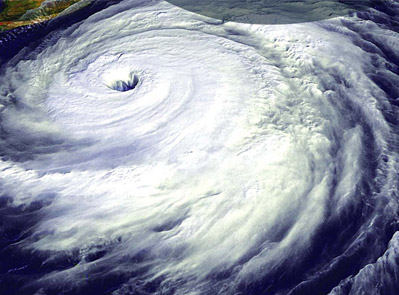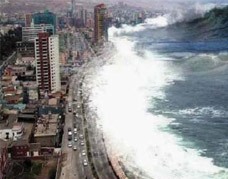| Research Themes > Coastal pollution monitoring and hazards |
Coastal hazards
Although the majority of the reported tsunamis are from littoral countries of the Pacific Ocean, there are a few cases of tsunamis in the Indian Ocean. Research is currently on, to study the historical records of individual tsunami flood events, which have important implications for disaster frequency, preplanning and coastal vulnerability reduction. Primary data that distinguishes episodes of coastal tsunami flooding within the long-term geological |
|
record on the basis of the microfossil (Foraminifera) assemblage are being assessed. Such analysis assists in the reconstruction of the number of paleotsunami events with specific coastal areas providing a valuable predictive tool for future tsunami recurrence. The hydrodynamics of this type of event contributes to complex deposition. To clearly distinguish storm and tsunami deposits from the under and overlying deposits, a multi proxy analysis is required. A set of palaeecological proxies have been studied in order to establish the full extent of the catastrophic event, but other non-catastrophic changes are also determined. The techniques that are being used include x-ray imaging, sediment visual description, laser granulometry, geochemistry (Atomic Absorption Spectrometry, X-ray Fluorescence), 210Pb, Optical Semi Luminescence and 14C dating, 16O/18O determination, and a range of sedimentological and palaeoecological proxies with the focus of obtaining well-dated tsunami/storm indicators such as salinity changes, grain size changes, erosive and compaction microstructures. Historical data are also used to collect complementary information about the effects of the tsunami and to reinforce the age-depth model of the sedimentary sequences. |
Current Projects
- Site specific transfer factor estimation around Kalpakkam funded by Board of Research in Nuclear Science (Department of Atomic Energy) (2006-2009).
- Marine Ecotoxicolgy funded by Department of Ocean Development (2002-2007).
- Pesticide analysis funded by DOD (2002-2007).
- Source strength of methane and N2O from wetlands rice fields of south India funded by CSIR (2004-2007)
- Ecological impacts of Tsunami and its implications on the livelihood on Nicobar group of islands funded by MoEF (2005-2006)
- Tidal impact and water quality assessment in Tsunami affected coastal Tamilnadu and Andaman islands funded by MoEF (2006)
- Monitoring and database collection of waterways of Chennai city funded by MoEF (2005-2008)
Completed Projects |
Identification of ecologically important areas of Indian coast funded by MoEF, GOI (2004-2006) |
DFID Training project on Integrated Coastal Zone management funded by Department of International Development DFID, United Kingdom. |
Biogeochemical cycle of methane in natural wetlands funded by Indian Space Research Organisation-Geosphere- Biosphere Programme. |
Water Quality Assessment and Characterisation in Pondicherry region funded by INCOH, Ministry of Water Resources, Govt. of India |
|
|
|



